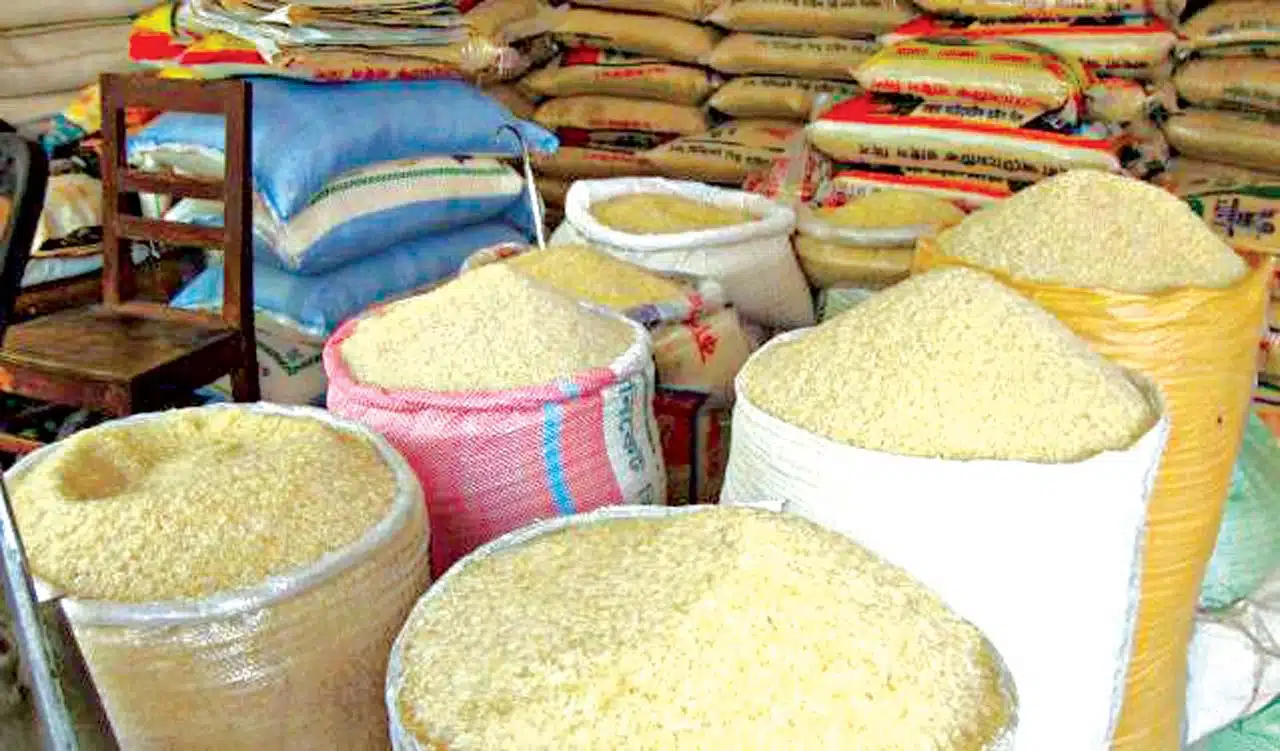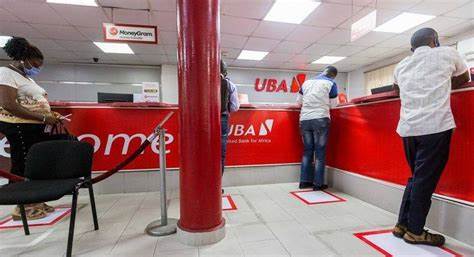In weeks, the Nigerian currency, the Naira, has appeared to gain strength against the US dollar, activating a significant drop in the cost of rice across various regions in the country.
Following the rebound of the Naira against the dollar, the cost of a 50-kilogram bag of rice has dropped to an average of N67,000 in major cities like Lagos, Abuja, Ogun, and others, marking a significant decrease from the steep prices seen earlier this year.
Join our WhatsApp ChannelIn communities situated near to the borders, the cost of rice has plunged even further. In Ogun border communities such as Imeko, Idiroko, and Oja-Odan, a bag of rice was supposedly selling for around N49,000 or underneath. Similarly, in Saki, a border community in Oyo State, the cost of a bag of rice has dropped to as low as N42,000, according to Ms Mayowa Tosho.
The decrease in rice costs can be credited to different variables, including changes in government policies, supply dynamics, and the recent appreciation of the Naira against other currencies. Strikingly, the ban on the importation of rice through land borders, forced by former President Muhammadu Buhari in 2015, has played a part in advancing local production and affecting market prices.
Furthermore, the Central Bank of Nigeria’s decision to lift the ban on the importation of rice and other things in October has provided importers with access to foreign exchange through the official market, contributing to the drop in rice prices.
READ ALSO: Naira Slumps To N1,234/$1 At Official Market
Despite the positive advancements, a few challenges persist, especially in regions where rice costs remain relatively high. In Asaba and Onitsha, for instance, rice costs extend between N83,000 and N95,000 per 50-kilogram bag, reflecting regional disparities in market rates.
While customers welcome the decrease in rice costs, economists emphasize the importance of sustained solidness in the market.
As the Naira continues to reinforce and government policies evolve, it remains to be seen how rice costs will further adjust in the coming months.
In light of these developments, Nigerians have taken to social media platforms to share their experiences with rice costs, highlighting both the progress made and the lingering challenges confronted in different parts of the country.
Emmanuel Ochayi is a journalist. He is a graduate of the University of Lagos, School of first choice and the nations pride. Emmanuel is keen on exploring writing angles in different areas, including Business, climate change, politics, Education, and others.
- Emmanuel Ochayihttps://www.primebusiness.africa/author/ochayi/
- Emmanuel Ochayihttps://www.primebusiness.africa/author/ochayi/
- Emmanuel Ochayihttps://www.primebusiness.africa/author/ochayi/
- Emmanuel Ochayihttps://www.primebusiness.africa/author/ochayi/




















Follow Us